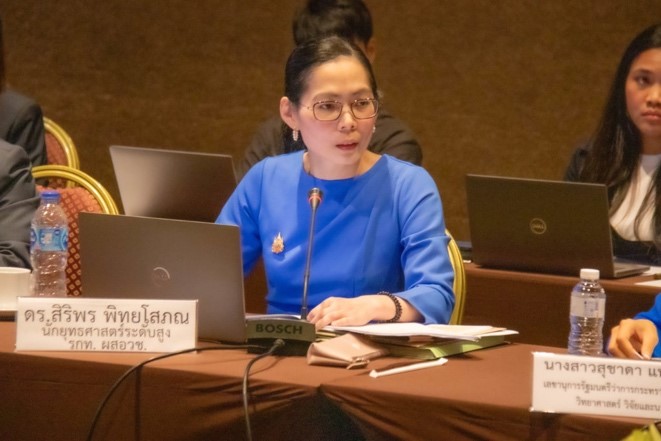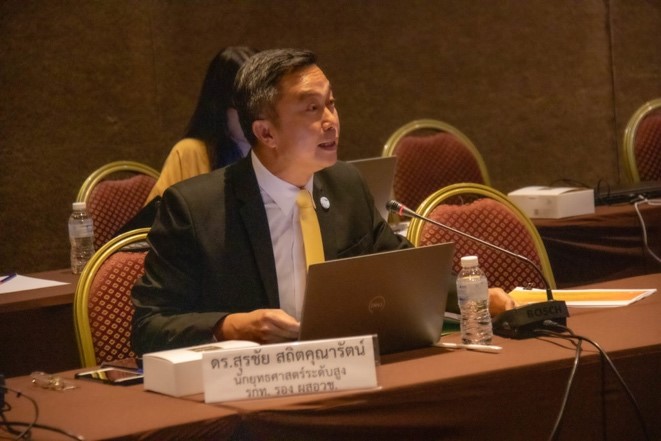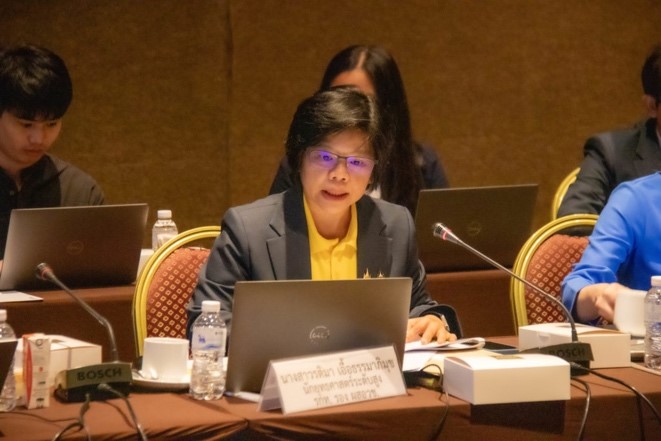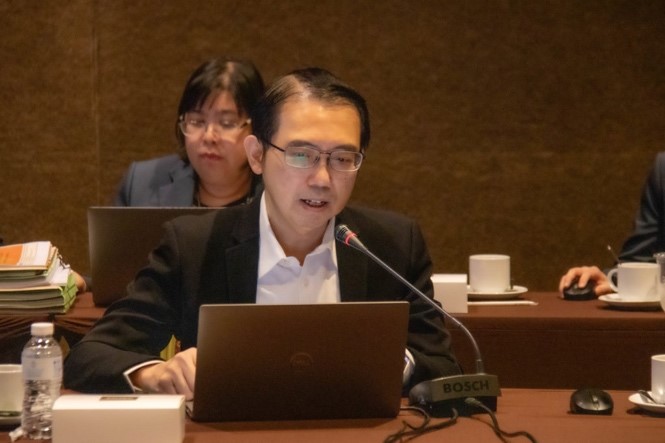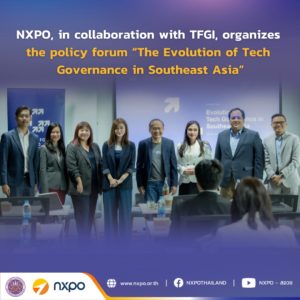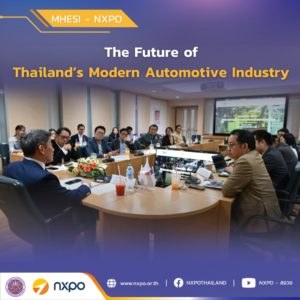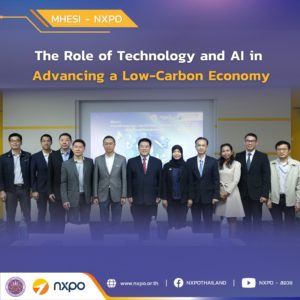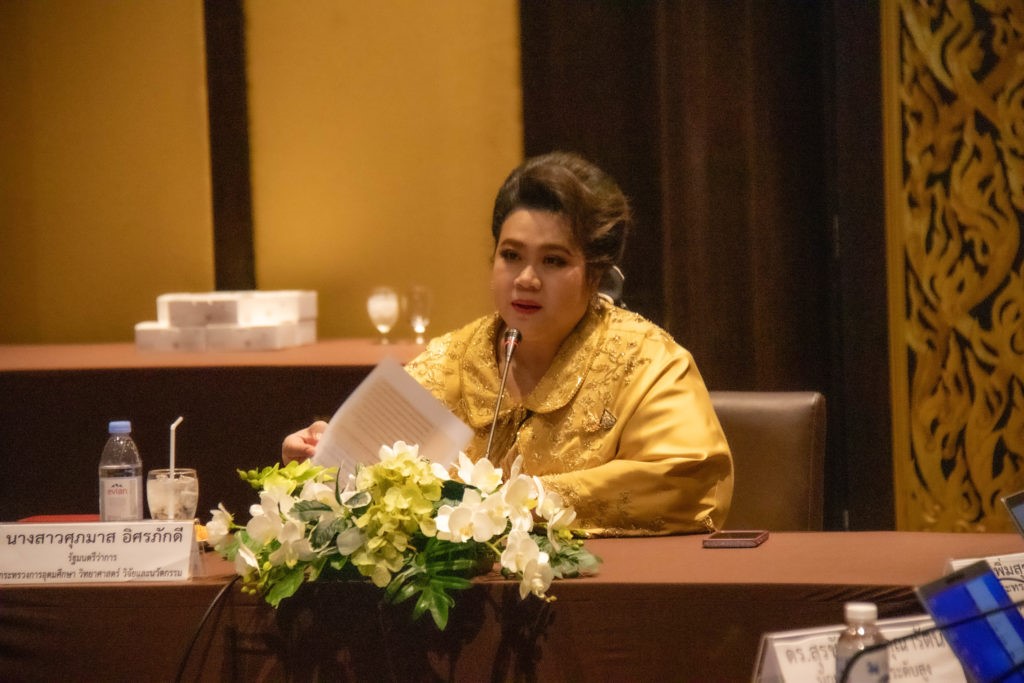
Minister Supamas Isarabhakdi presided over the hybrid meeting of the NXPO Executive Board on 16 August 2024. Before proceeding with the meeting agenda, Minister Supamas encouraged board members and attendees to visit the National Science and Technology Fair 2024: Future Science Community for All, being held at IMPACT Muang Thong Thani from 16 to 25 August.
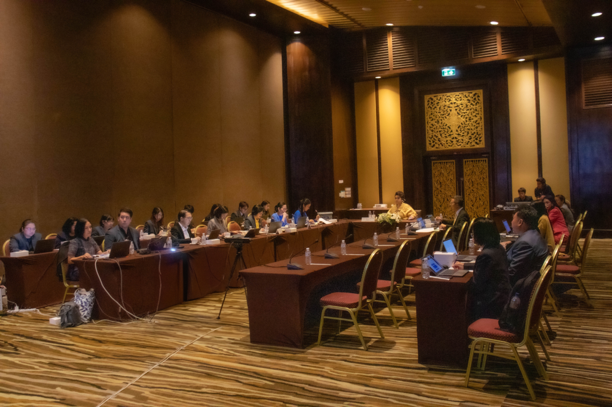
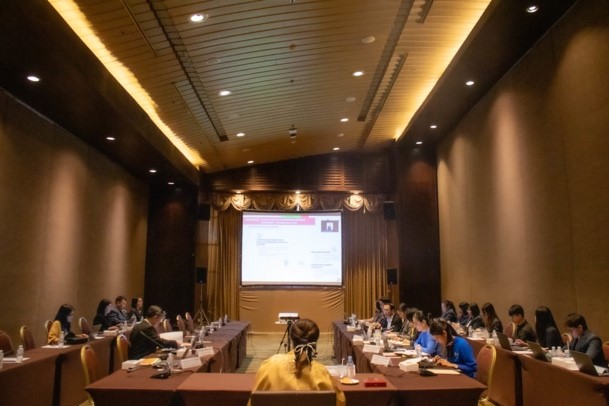
During the meeting, NXPO presented its performance report for the third quarter. Key achievements in each strategic area are as follows:
- Freeing Thailand from the middle-income trap and increasing the number of innovation-driven enterprises (IDEs): promoting academia-industry investment and research commercialization through the University Holding Company mechanism; supporting IDEs with intermediary, innovation business development service, and mentorship programs; implementing an offset policy mandating technology and knowledge transfer when procuring products from foreign suppliers; and supporting future industries, including a market acceleration program for the future food industry, a semiconductor workforce development program, and the standardization of electric vehicles (EVs) and EV conversion.
- Enhancing the grassroots economy and reducing inequality: incorporating research agendas for highland areas into the science research and innovation action plan; creating a Social Enterprise Incubation Platform to foster local and social enterprises in collaboration with regional science parks.
- Reducing greenhouse gas emissions by 10 million tons of CO2 equivalent: fostering a net zero ecosystem to facilitate knowledge and technology exchange between Thai companies and foreign organizations; developing low carbon city models; and launching the Net Zero Campus initiative, supporting 50 universities to achieve net zero emissions.
- Increasing the proportion of high-skilled workers to 25%: establishing the STEMPus platform, which has supported the upskilling of 293,616 workers and facilitated 7,094 STEM job placements in 139 companies; conducting a survey on workforce requirements for 2025 to 2029 in target industries; and implementing a university-industry workforce development program in semiconductor and advanced electronics, serving as a model for other industries.
Improving the higher education, science, research, and innovation system: implementing a new budget allocation system to support MHESI integrated databases; and revising laws and regulations to facilitate international cooperation.
